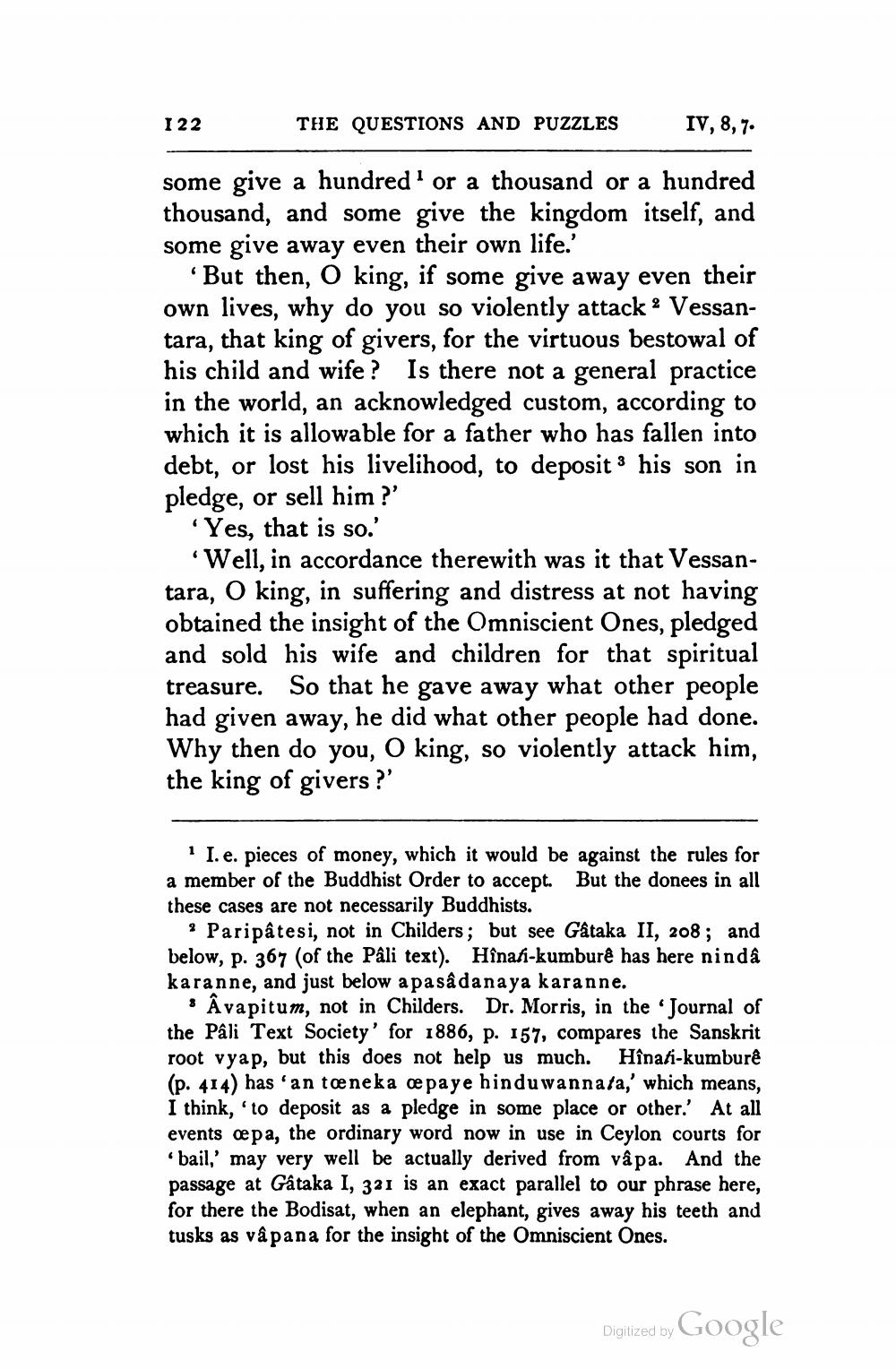________________
I 22
THE QUESTIONS AND PUZZLES
IV, 8,7.
some give a hundred' or a thousand or a hundred thousand, and some give the kingdom itself, and some give away even their own life.'
But then, O king, if some give away even their own lives, why do you so violently attack 2 Vessantara, that king of givers, for the virtuous bestowal of his child and wife? Is there not a general practice in the world, an acknowledged custom, according to which it is allowable for a father who has fallen into debt, or lost his livelihood, to deposits his son in pledge, or sell him ?'
Yes, that is so.'
Well, in accordance therewith was it that Vessantara, O king, in suffering and distress at not having obtained the insight of the Omniscient Ones, pledged and sold his wife and children for that spiritual treasure. So that he gave away what other people had given away, he did what other people had done. Why then do you, O king, so violently attack him, the king of givers ?'
1 I.e. pieces of money, which it would be against the rules for a member of the Buddhist Order to accept. But the donees in all these cases are not necessarily Buddhists.
? Paripâtesi, not in Childers; but see Gåtaka II, 208; and below, p. 367 (of the Pâli text). Hînati-kumburê has here ninda karanne, and just below a pasadanaya karanne.
Avapitum, not in Childers. Dr. Morris, in the Journal of the Pali Text Society' for 1886, p. 157, compares the Sanskrit root vyap, but this does not help us much. Hînati-kumburê (p. 414) has 'an teeneka cepaye hindu wannala,' which means, I think, 'to deposit as a pledge in some place or other.' At all events cepa, the ordinary word now in use in Ceylon courts for
bail,' may very well be actually derived from våpa. And the passage at Gåtaka I, 321 is an exact parallel to our phrase here, for there the Bodisat, when an elephant, gives away his teeth and tusks as vâ pana for the insight of the Omniscient Ones.
Digitized by Google




